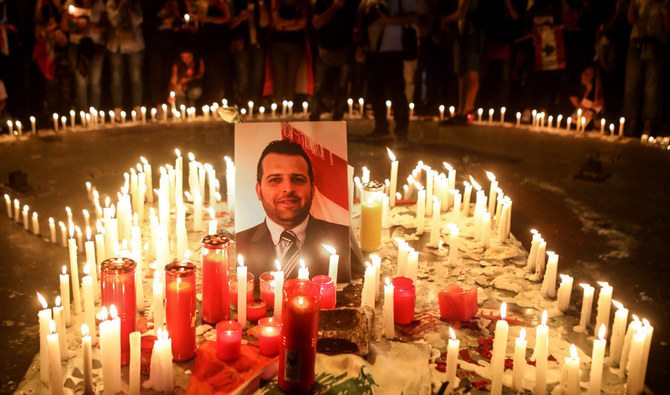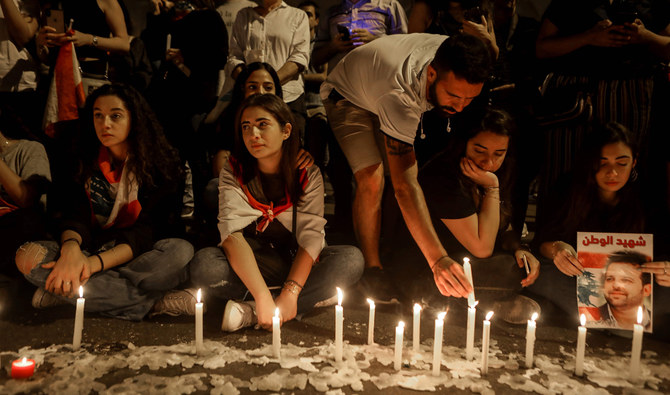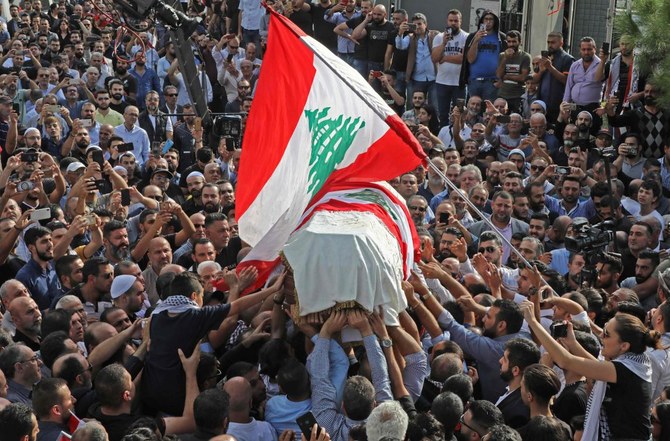BEIRUT: Thousands of Lebanese mourners on Thursday paid tribute to the first casualty of Lebanon’s protests, dubbed a “martyr of the revolution” by protesters.
To cries of “Revolution, revolution,” protesters from across the country watched as the body of Alaa’ Abu Fakhr, draped in the Lebanese flag, was carried to his final resting place in his hometown Choueifat, south of Beirut.
Mourners also carried the sobbing son of the victim, Omar, who raised his hand in a victory sign.
Abu Fakhr, 39, a father of three, died on Tuesday after an army officer opened fire on demonstrators blocking roads in the coastal town of Khalde, south of Beirut.
News of his death was met with shock and anger among protesters who have taken to the streets for the past 29 days demanding the removal of politicians accused of inefficiency and corruption.
Demonstrators on Tuesday night blocked roads and set tires ablaze, then rallied for nationwide protests on Wednesday where pictures of Abu Fakhr were held aloft.
The following night a Free Patriotic Movement supporter was arrested after firing on protesters in Jal El-Dib. There were no injuries.
Later, Maronite Patriarch Bechara Al-Rahi called on protesters to “show restraint and maintain peaceful protests.”
The army on Thursday reopened roads blocked by protesters on Tuesday night following a TV interview with President Michel Aoun.
State Prosecutor Judge Ghassan Oueidat said that Khaldoun Jaber, an activist leader who went missing during protests near the presidential palace in Baabda on Wednesday, will be released.
Banks will remain closed on Friday for the fourth day after employees said they feared for their safety and felt intimidated by customers demanding to withdraw large amounts of cash in dollars following strict limits imposed by banks.
On the second day of his visit to Lebanon, French envoy Christophe Varno said that “everyone is concerned about the hardships Lebanon is facing.”
Varno called for the rapid formation of “a government that is efficient, effective and capable of taking decisions that respond to the aspirations of the Lebanese people and restoring their faith.”
Meanwhile, a source close to former Prime Minister Saad Hariri told Arab News that “Hariri is convinced that nothing can save the country except a government of experts, and he is stressing that he is at the service of his country and its economy.”
Hariri resigned on Oct. 29, but Aoun is yet to set a date for consultations on the appointment of a new prime minister.
Sources close to the former prime minister said: “The other side would normally inform Hariri of their approval or disapproval of his demand, but we have not received anything yet.”

























